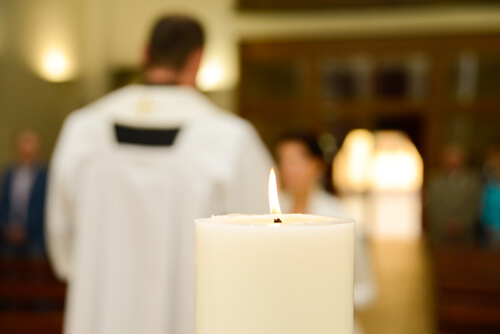Ricochet is the best place on the internet to discuss the issues of the day, either through commenting on posts or writing your own for our active and dynamic community in a fully moderated environment. In addition, the Ricochet Audio Network offers over 50 original podcasts with new episodes released every day.
 Standing On Ceremony
Standing On Ceremony
 As a happy break from writing about crime (gloomy) and marriage (even more gloomy) I’ve lately been writing a paper on liturgical theology, which is intended as a chapter for a forthcoming book designed to foster ecumenical dialogue between Roman Catholics and Latter-Day-Saints. It’s proving to be an enjoyable project, which has turned my thoughts to the role of formal ceremony in American life more generally.
As a happy break from writing about crime (gloomy) and marriage (even more gloomy) I’ve lately been writing a paper on liturgical theology, which is intended as a chapter for a forthcoming book designed to foster ecumenical dialogue between Roman Catholics and Latter-Day-Saints. It’s proving to be an enjoyable project, which has turned my thoughts to the role of formal ceremony in American life more generally.
Many of you know that I was raised Mormon and am now Catholic, and as a Catholic I developed a deep love of traditional liturgy. Since I developed that taste primarily in my Catholic life, my initial impulse was to think that Mormons are fairly lacking in any kind of formal liturgy. On further reflection though, that’s not as true as it might seem. Of course, the obvious place to find formal Mormon liturgy is in their temple ceremonies. But even in more ordinary settings, Mormons do have a high appreciation of formality and ceremony, along with a very definite sense of decorum. We both (that is, Catholics and Mormons) run against the grain of so much of our mainstream culture, where people are largely ashamed of anything that seems too formal, too ceremonial, or too “scripted”.
To my mind, the loss of ceremony is something of a tragedy. Ceremony and custom are critical to helping us make sense of moments and experiences in life that are naturally difficult for us to process. Weddings and funerals are two events that should absolutely be steeped in ceremony, because these are the moments in life when we struggle to connect our private experiences to something greater than our subjective emotions. Ceremony helps teach us what these occasions really mean and how we can get perspective on them. Sadly, many or most modern weddings have degenerated into glorified beauty pageants, while funerals often don’t happen at all.
Of course it’s hard to generate meaningful ceremony among people who don’t really believe in anything. The struggle for transcendence is part of what distinguishes silly and clownish attempts at ceremony from customs that are genuinely beautiful and rich. Tradition is also a vital component of liturgy (and its cultural counterpart, ceremony), and once traditions have broken down, it’s hard to recover them in an authentic way. Sadly, this breakdown probably contributes further to the contempt that progressives have for the earnestly religious, because liturgical action always looks bizarre and contrived to those who have no entry-point for understanding it.
Are there places in mainstream American life where we could help people to recover that sense of decorum? How do we persuade people that this kind of tradition is worth taking seriously?
Published in Culture, General, Religion & Philosophy



Gosh, that was easy.
I just meant that it shouldn’t be surprising that a Mormon thinks other churches get it wrong.
-E